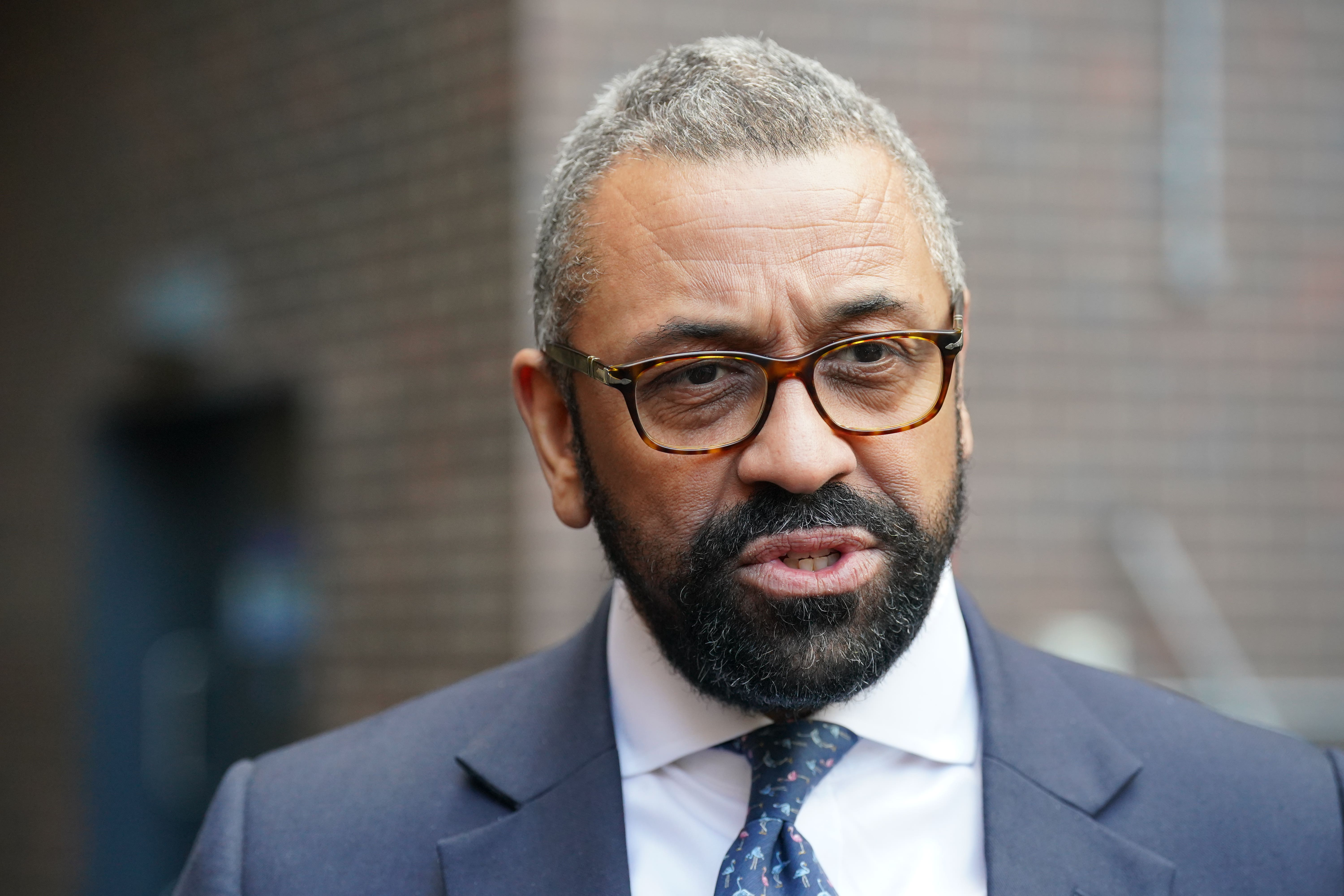Mandatory reporting duty introduced for child sex abuse disclosures
People with childcare responsibilities in regulated sectors could be barred from working with children again if they fail to report a disclosure.

Teachers and healthcare workers in England and Wales will be legally required to report cases of child sexual abuse under Government plans.
People with childcare responsibilities in regulated sectors could be barred from working with children again if they fail to report a disclosure.
The new mandatory reporting duty was announced on Wednesday.
It also means that anyone who actively blocks someone from reporting or covers up a disclosure of child sexual abuse could go to prison for seven years.
Home Secretary James Cleverly met Commander Kevin Southworth, the Public Protection Lead, and Detective Chief Superintendent Angela Craggs, both from the Met Police, at Hammersmith Police Station on Monday to discuss the new policies.
Mr Cleverly said: “Sadly what we have seen too many examples of is children suffering from abuse and that abuse not being reported and no child should have to endure that.
“What we’re saying now is that if it has been brought to your attention that abuse is happening, there is now a duty to report that abuse so that the situations we have seen in the past can never happen again.”
Mr Cleverly also announced plans to give the police powers to stop registered sex offenders from changing their name.
Another new policy will require registered sex offenders to notify the authorities of changes to their personal circumstances.
The measures will be introduced as amendments to the Criminal Justice Bill currently being considered by Parliament.
Mr Cleverly said: “This is in response to specific calls for change that we’ve received from campaigners, from victims, from people that I’ve met and spoken to, and it’s an important step in the right direction.
“We are making it absolutely clear that you have a moral duty, a professional duty, but of course now a legal duty to report where it’s been brought to your attention that abuse has happened.”
When asked whether people who work with children should be concerned about ending up on the wrong side of the law, Mr Cleverly responded: “Do the right thing, that’s all we’re saying. Do the right thing.
“If things are brought to your attention, then report them. And we would prefer that reports happen that can be investigated and then discounted if they are not examples of criminality.
“But what we’ve seen, sadly, is far too many cases where abuse was happening, was known to be happening, and action wasn’t taken. And that’s what we’re seeking to address.”
It comes after the Independent Inquiry into Child Sexual Abuse (IICSA) uncovered wide-ranging failings in how institutions protect children from sexual harm and exploitation. The Inquiry was established in 2015 and its final report – with evidence from 7,000 victims – was published in October 2022.
It set out 20 recommendations for the Government. In May 2023, former home secretary Suella Braverman said the Government had accepted the need to act on 19 of the recommendations.
The head of the IICSA, Professor Alexis Jay, previously criticised the Government’s response to the report. Campaigners have also condemned the length of time it has taken the Home Office to introduce new measures.
Laura Farris, the minister for victims and safeguarding, visited Fulham Cross Academy on Monday for a round table discussion and to talk with students about speaking up about sexual harassment.
Ms Farris, who acted as counsel to the IICSA from 2016 to 2017, said: “If there were common threads that linked all of the children, now adults, who came forward to give evidence to the inquiry, it was either that they had been in a position of such a sort of powerlessness as a child that they didn’t feel they could say anything, or that they had said something and they’d been ignored.”
She said that many children described not being believed or made to feel guilty for not being grateful for the attention they had received from the perpetrator.
Ms Farris added that it was important for the new legislation to strike a balance between prioritising the safety of the child, whilst also ensuring that it did not risk over-penalising people who care for children in informal and voluntary settings.
“I think finding that right level took some time and it required a consultation, but we’re confident that we’ve judged it correctly,” Ms Farris said.
“Overall, if you look at the final conclusions of that inquiry, their number one recommendation was that mandatory reporting was rolled out as an obligation across the country. And so I’m absolutely delighted that we’re putting that into law today.”